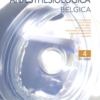High spinal anesthesia combined with general anesthesia versus general anesthesia alone : a retrospective cohort study in cardiac surgical patients
fast track anesthesia, spinal anesthesia, car- diac surgery, early extubation, postoperative analgesia, enhanced recovery
Published online: Jun 28 2019
Abstract
Background : Spinal anesthesia using intrathecal opioids alone does not offer significant benefits in cardiac surgery. Spinal anesthesia with local anesthetics blunts the stress and inflammatory response to cardiac surgery but has not been widely used. We report our experience with high spinal anesthesia in cardiac surgery in the setting of a “fast track” practice.
Methods : A retrospective matched cohort study comparing cardiac surgery patients having spinal anesthesia combined with general anesthesia compared to a control group having general anesthesia alone, conducted at two university hospitals between 2000 and 2010. Control patients were matched for age, sex, procedure, date, surgeon, site of operation and ejection fraction. Pre-specified data was abstracted.
Interventions : Spinal patients received intrathecal hyperbaric bupivacaine (0.75%), 39.6 ± 6.9 mg; morphine, 268 ± 54 µg plus a general anesthetic.
Results: 331 patients had surgery with spinal anesthesia. 331 matched controls were identified. Both groups were well matched for pre-determined variables. More spinal patients were extubated in the operating room (60.4% vs 43.2%, p = 0.001). Spinal patients required less opioids postoperatively (morphine equivalents, 18.5 mg vs 40,8 mg P < 0.001). There was no difference in ICU or hospital length of stay, return for bleeding or in-hospital mortality. No spinal patients required ICU readmission (0 vs 2.4%, p = 0.004). There were no spinal-related complications.
Conclusions : Spinal anesthesia improved post-operative recovery of cardiac surgical patients as manifested by earlier extubation, less opioid consumption and fewer ICU readmissions. Spinal anesthesia may be a method to augment enhanced recovery programs after cardiac surgery, which should be evaluated in prospective studies.
